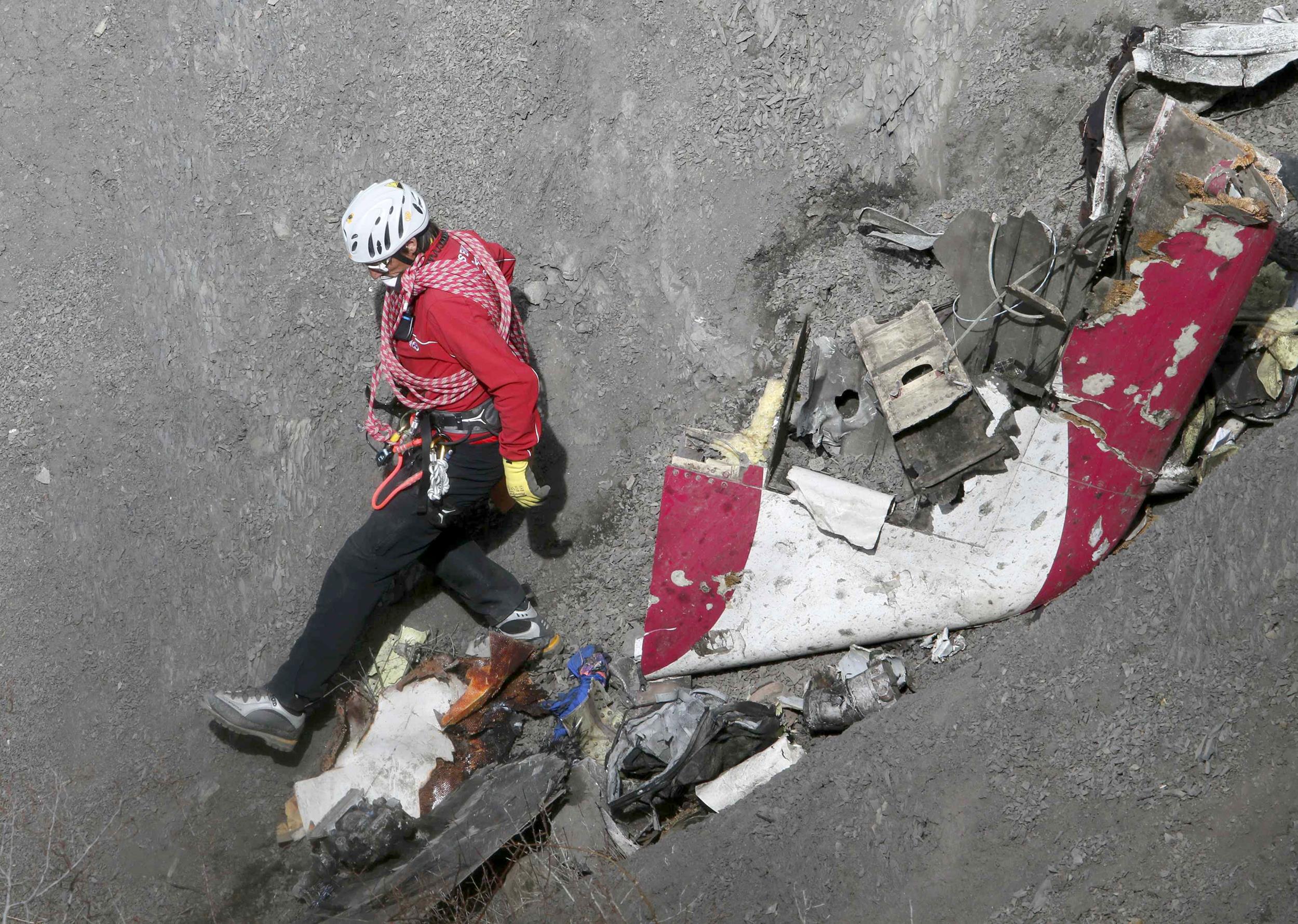The co-pilot, Andrea Lubitz, of the Germanwings Flight 4525 which crashed on its return flight from Barcelona to Duesseldorf in the French Alps on March 24, 2015, killing all 150 passengers and crew on board has reportedly practiced a controlled descent on his previous flight, two hours before he crashed the A320 jet into a mountainside, French air accident investigators said Wednesday.
He allegedly set the plane into descent mode five times in a four and a half-minute period during a flight from Duesseldorf to Barcelona, then brought it back up again on a flight, the BEA investigation agency said in an interim report on the crash.
Prosecutors have previously said Lubitz intentionally locked the pilot out of the cockpit and crashed the plane killing all 150 people on board. Wednesday’s 30-page report said the pilot appeared to have left the cockpit during the earlier flight as well.
The report revealed that the pilot left the cockpit on the Duesseldorf-Barcelona flight for about 4 ½ minutes. Shortly after the pilot left, the “selected altitude” of the flight changed repeatedly, including several times as low as 100 feet (30 meters).
A chart released by the BEA showed the plane didn’t descend sharply during this period, suggesting that passengers and crew might not have noticed any change. It would be highly unusual for a pilot to repeatedly set a plane for such a low altitude for no apparent reason.
The BEA report however did not analyze why Lubitz repeatedly tried to descend the plane. It said it is continuing to look at the “systemic failings that may have led to this accident or similar events.”
The investigators said their main focus is on “the current balance between medical confidentiality and flight safety” and the “compromises” made on security after the Sept. 11 attacks in the U.S., notably on cockpit door locking systems. French prosecutors are conducting a separate criminal investigation into the crash.
Lufthansa, the parent company of Germanwings, spokesman Helmut Tolksdorf said by phone from Frankfurt that the airline had yet to analyze the new details released by French authorities and planned no immediate comment.
The fact that Lubitz had suffered severe depression and been on medication in the past still does not explain why he would have wanted to crash the plane.







